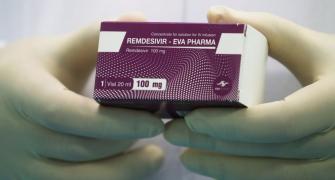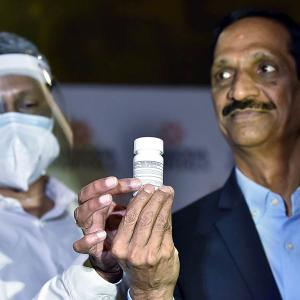A drug already approved in the US for eye disease may stop the reproduction of SARS-CoV-2, the virus that causes COVID-19, according to a study.

The results indicate that the drug called verteporfin, used for treating eye-disease, may be a candidate to treat COVID-19, and its status as FDA-approved could make it easier to launch clinical trials to verify its safety and effectiveness against the coronavirus.
The interdisciplinary study, led by University of California, Los Angeles and published in PLOS Biology, showed that the Hippo signalling pathway is activated within days of SARS-CoV-2 infection, suggesting that treatments using the mechanism could be deployed before symptoms arise to reduce the severity of disease, the study said.
Signalling pathways are complicated chain reactions which control many important human biological processes and in which certain proteins act as messenger molecules that promote or block the signals of other proteins.
The scientists, therefore, identified the Hippo signalling pathway as a potential target for therapies against the coronavirus.
The scientists performed experiments using tissue samples from people with COVID-19, as well as cultured human heart and lung cells selected to closely reflect how healthy cells respond to SARS-CoV-2 infection, the study said.
They observed changes in many genes involved with the Hippo signalling pathway after infection. In addition, they examined a protein called YAP, or Yes-associated protein, whose activity is blocked when the Hippo pathway is activated, according to the study.
The scientists found that in the cultured human cells, both the original strain and Delta variant of SARS-CoV-2 activated the Hippo pathway in the first few days after infection.
When they silenced this pathway and increased YAP, the virus replicated itself more. The team also pretreated cells with verteporfin, which blocks YAP in the eye disease known as choroidal neovascularization, and then infected them with SARS-CoV-2, the study said.
In the verteporfin-treated cells, concentrations of the coronavirus were below detectable levels, compared to more than 60,000 units of the virus per millilitre in an untreated control group, according to the study.
The lead researchers were investigating the Hippo pathway, which controls the size of organs in the body, in earlier National Institutes of Health-funded studies of the Zika virus, which can cause undersized brains in infants.
Noticing that this pathway also seemed to have virus-fighting effects, they launched the current study investigating SARS-CoV-2, the study said.










